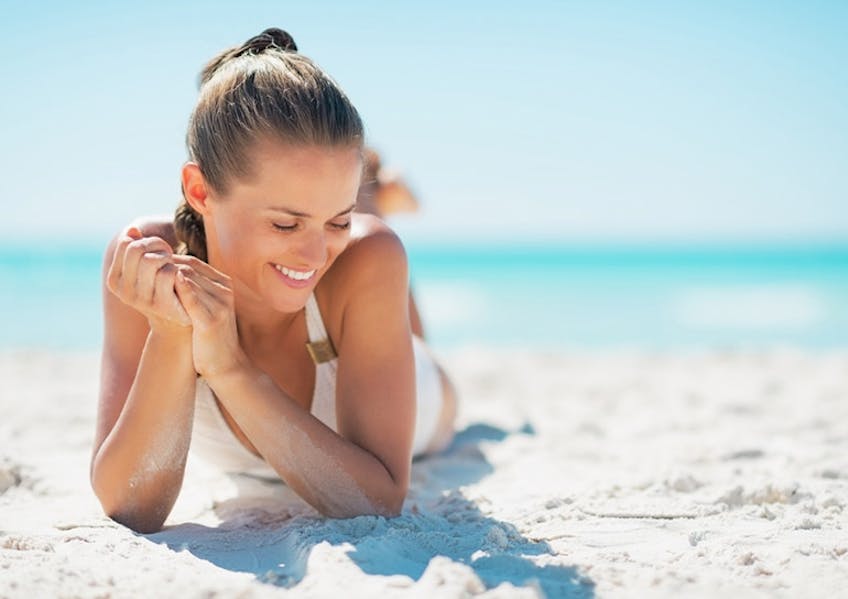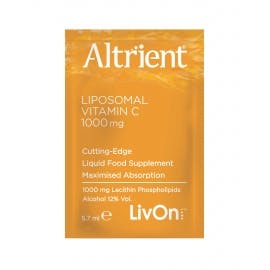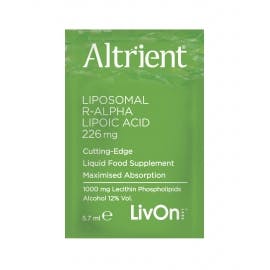How to supercharge your skin protection this summer!
R-Alpha Lipoic Acid and Liposomal Vitamin C protect skin cells from the harmful effects of the summer sun.
With the arrival of long sunny days and the promise of holidays abroad, the danger is that in the rush to get bronzed you could end up causing yourself irreversible skin damage and ageing your skin before its time. No thanks!
Here are some great ways to stay skin safe this summer….
Risks and triggers
Skin cells respond to sunlight by producing melanin, the brown pigment responsible for your tan, which protects your skin by absorbing the damaging energy from ultraviolet rays.
According to Cancer Research UK, 10,400 people in the UK are diagnosed with skin cancer each year and statistics for melanoma have quadrupled since the 1970s! In fact, over the last 25 years, rates of melanoma in Britain have risen faster than any other common form of cancer.
So the message about skin protection has become pretty clear and many of us now smear ourselves and our children from top to toe in high factor SPF. Which poses the question, why are statistics still on the increase?
Sun exposure is the main trigger for skin cancer and you are at increased risk if you have light eyes or hair, sunburn easily, use sunbeds or have lots of moles and freckles. Sunburn is a big factor and it’s now known that having a history of sunburn actually doubles your chances of developing non-melanoma skin cancer.
Act now
It’s not unusual to think that cancer is something that is likely to strike in your more mature years but whilst this is true for many forms of cancer it’s a different story for melanoma.
Almost 30% of all cases occur in people under 50 and melanoma is the most common cancer for the 15-34’s. Taking precautions in your younger years is paramount if you’re a sun worshiper.
UV facts
Sunlight contains UV light which is essentially a form of radiation. Shortwave radiation or UVB is very powerful and capable of burning your skin. Longwave radiation or UVA is much softer on your skin but still needs to be protected from.
During the middle of the day, UV is at its most intense and capable of burning and ageing your skin. Using an SPF that offers protection from both these types of UV is a great place to start. Building up your tan slowly and staying out of the sun from 12-3pm is another way to reduce your risk of skin damage.
SPF A and B protection, please
When buying a sunscreen it’s important to check the label. Unless a sun cream is a broad spectrum, it only protects against UVB, meaning it’s unlikely to protect against UVA responsible for melanoma.
There is plenty of speculation and confusion surrounding the ingredients in sun creams and if any of these are harmful. Rest assured that studies have revealed the two main SPF mineral filters - titanium dioxide and zinc oxide - sit on the surface of the skin and don’t cause harm to skin cells.
However, safety assessments have highlighted a handful of ingredients that certainly do more harm than good - para-aminobenzoic acid (PABA), phenylbenzimidazole (PBI), octocrylene and octylmethoxycinnamote – these common SPF ingredients actually increase the risk of melanoma by damaging skin cells!
Make sure you read the label!
Damaging free radicals
As the UV radiation hits your skin cells, substances called ‘free radicals’ are generated which can alter skin cell and DNA structure triggering skin cancer and poor skin cell immunity. These free radicals also destroy elastin and collagen, the two skin proteins that give us toned and youthful looking skin.
Powerful nutrition protection
Research has now shown that specific antioxidant nutrients have the power to neutralise these free radicals and boost the skins natural immunity to skin cancer by up to 25%.
These skin-saving nutrients include the antioxidant nutrients vitamins C, E, beta-carotene and lycopene which eradicate free radicals and protect skin cells from further damage.
Vitamin C is essential for the formation of collagen and elastin so this nutrient is particularly important for summer sun-kissed skin. R-ALA (R-Alpha Lipoic Acid) is another highly protective antioxidant present in all skin cells which works in synergy with vitamin C, making them a powerful protection and repair team.
You would be wise to supplement with both of these nutrients, but for added effectiveness look for a liposomal supplement such as Altrient C and Altrient R-ALA for enhanced skin protection across the summer months or before, during and after a skin-scorching summer holiday.
Mediterranean style diet
Mediterranean countries have low levels of melanoma rates yet their UV rays are intense. The wonderful antioxidants nutrients are found in abundance in the colourful fruits, vegetable and oils that are plentiful in the Mediterranean diet explaining why this style of eating is so protective.
Some studies reveal that sun damage can be reduced by following a diet that is high in omega-9 (olive oil) and omega-3 (oily fish), low in red meat, saturated fats and dairy products and packed full of colourful fruits and vegetables (particularly tomatoes rich in the lycopene a skin-protective antioxidant) accompanied by a little red wine and a slow (stress-free) pace of life.
Make sure you protect your skin this summer!
Susie Perry Debice
BSc Hons, Dip ION Food Scientist and Nutritional Therapist





